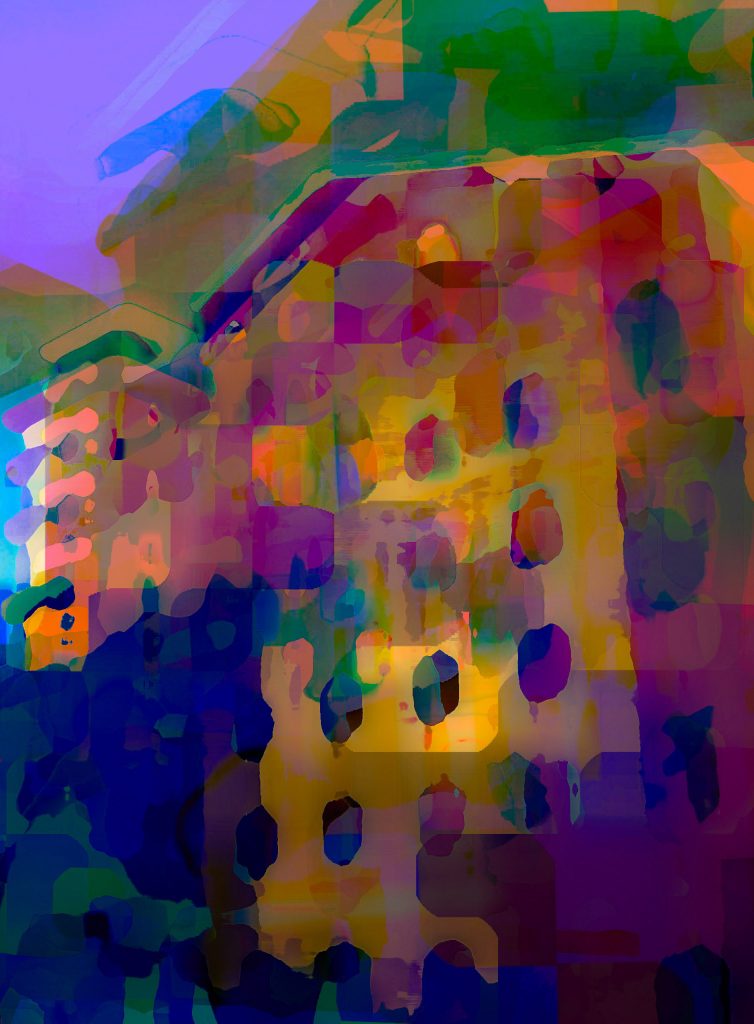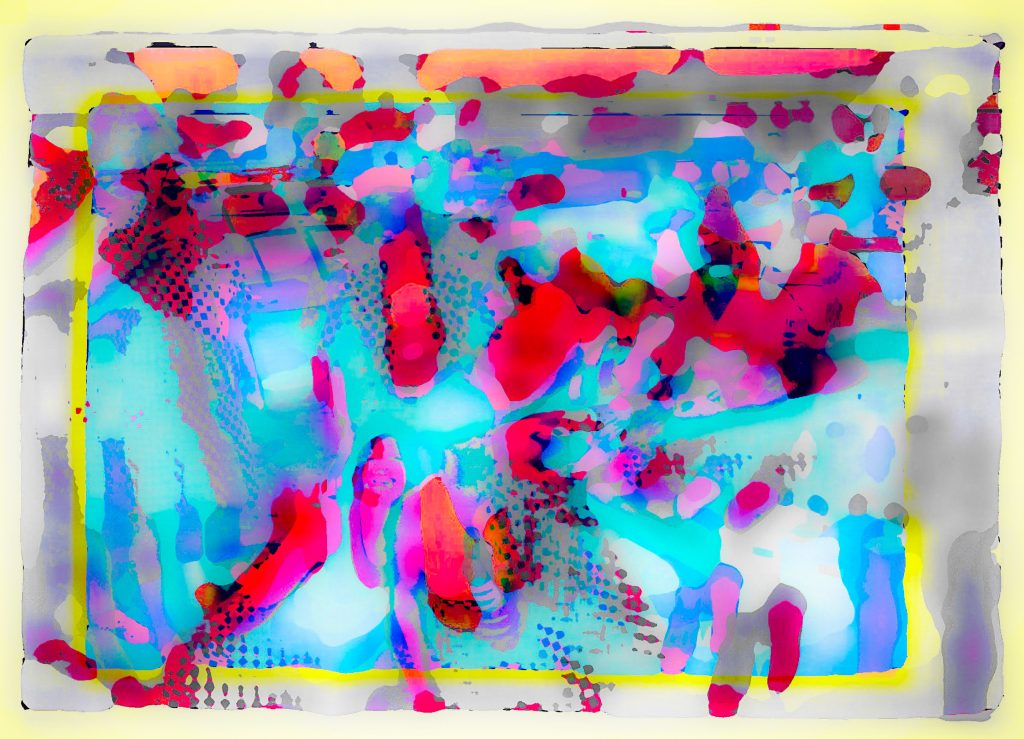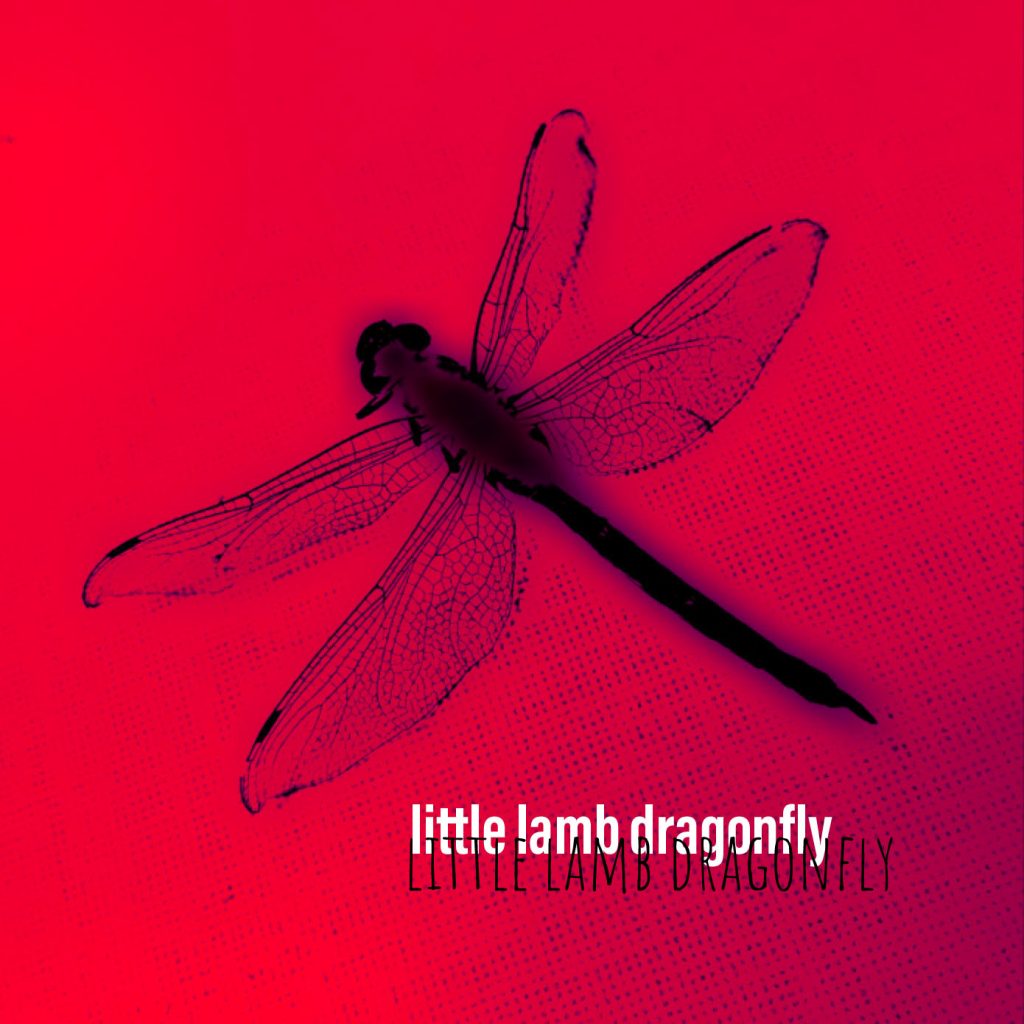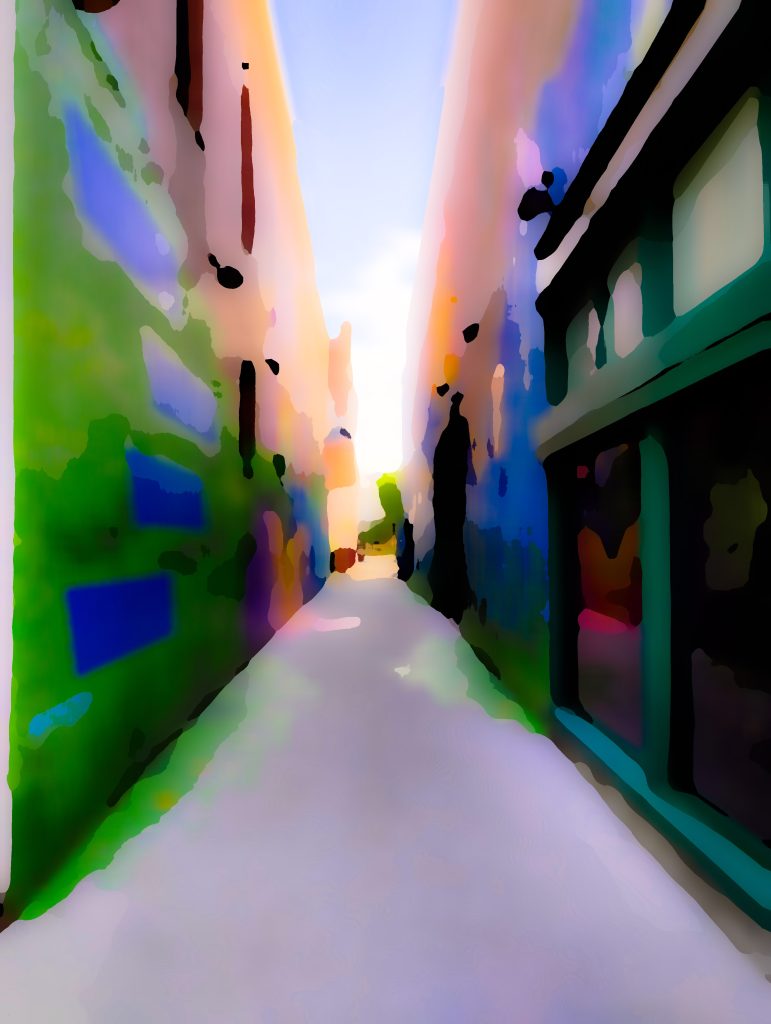Mixed Bag
Scott Brown sat on the sofa in the shadowy living room of his modest clapboard house, a warm beer clutched in his hand. His clouded mind journeyed back through the previous year. What might he have done differently? he wondered. And what should he do next? With a tired sigh he sat up straight. There was no time like the present, he decided.
One year ago
The call came in at 3pm Central Standard Time. I was living in Illinois, across the river from St. Louis, 20 minutes from the Gateway Arch. I didn’t recognize the number, so I ignored the summons at first. But when the call went to voicemail, they hung up and then called back immediately and, thinking it could be important, I picked up. It was.
I said, “Hello?”
“Mr. Brown, please?” asked the young-sounding male voice. “I need to reach Mr. Brown or another member of the Brown family.”
“You got him,” I said easily, expecting a spiel on a Medicare advantage plan or something. “This is Scott Brown.”
“Mr. Brown, are you related to Phillip Brown?”
Instantly my heart sank. I had neither seen nor heard from Phil for many years and I knew this could not be good news.
“Phil’s my brother,” I told the man.”Mr. Brown,” he said, “this is the San Francisco Medical Examiner. I have some bad news to deliver to you.”
That sealed it. He continued, “Your brother was found deceased in his Veterans’ Housing apartment earlier this week. I am very sorry, sir.”
I took a great breath and then released it. “Can you tell me anything about the circumstances of his passing?” I asked. I had assumed for years that he was already dead.
“Yes, of course. He was reported as unheard from by a wellness worker three days ago and the police were summoned and when they arrived they gained access to the apartment through the building manager. Phillip was unresponsive and emergency workers were unable to revive him. There was no sign of foul play…””How long had he been…deceased?” I asked
.”He was last sighted on Oct. 23,” the ME told me. I glanced at the calendar on my laptop: it said Nov. 14.I shook my head.
“I’ve very sorry for your loss,” the man said again. “Did he have any children that you’re aware of?” he asked. An old joke, but serious as a heart attack.
“I’ve no idea,” I said honestly. “How did he die?” I asked.
“There was drug paraphernalia found in his residence,” said the man. “And his remains tested positive for fentanyl.”
“So, just another statistic, huh?” I asked bleakly.
“I’m afraid so. I wish there was more I could tell you.”
“Thank you.”
“Could you tell me when you last saw your brother?” he asked next.
“It’s been right on 50 years,” I said.
“I see. I’m required to ask,” said the man, “if you wish to make funeral arrangements?”
“No,” I replied at once. “Regretfully,” I added.”
I understand,” he said, then he told me how sorry he was again and we ended the call. I went through a maelstrom of emotions: loss, anger, indifference, then loss again.
My brother and I had little in common, going back to when we were youngsters. But there is an indelible bond that exists between individuals, particularly family members, who have known one another for all their lives. I had often fantasized about what I would do if ever Phil would come home, the prodigal son, and beg forgiveness. I’d told myself I would spurn him, deny him entrance to the home that I’d inherited from our parents; a home that we’d shared as children. But, would I have treated him so indifferently? I still don’t know.
I walked into the kitchen, fetched a can of beer and returned to the living room and sat down on the sofa. I reached out and seized the large half-filled bottle of liquid cold meds. Unscrewing the cap, I took an unmeasured swig of the gloppy green fluid, then shuddered at the awful after taste. I popped the tab on the beer and took a big drink. And thus began the evening,
The next morning, I awoke slumped on the sofa. I stared blearily at the forest of spent beer cans and the now-empty bottle of cold medicine. Then I recalled the night before. The phone call from California. For a long moment, I wondered whom I should notify of Phil’s death. There was no one in our immediate family left to inform; my parents had predeceased us and I had no other siblings. We’d had just two aunts and uncles and a small handful of cousins growing up and they were all long gone or unreachable.
Apart from my parents, family had not figured prominently in my life for many years. I had no best friend to be consoled by and no significant other; no friends I ran with. I was a 71-year-old disabled man with practically no connection to the world outside the four walls of my home. I no longer even drove, and my most frequent visitors were the kid who mowed the lawn and the man who delivered my mail. Feeling an almost overwhelming aloneness, I cast my thoughts back to my brother.
Phil had in part made me the man I became. My parents’ disappointment in Phil’s lack of effort in school, despite his native intelligence and creativity, served to make me study that much harder, in order to please them. Perhaps Phil thought I did it to show him up, but it wasn’t like that. The older I got, the more Phil’s resentment seemed to build, manifesting itself in beatings and scorn and overt animosity towards his younger brother. I grew up believing that all sibling relationships mirrored our own, but discovered, years later, that genuine love often existed between brothers. Phil was always hugely popular with people unrelated to him.
“You got a fine son there, Carol,” they would tell my mom. “He always pitches in and helps out.”
“He does?” my mom would ask in surprise. That didn’t sound like Phil. From a tender age, he got into trouble with the police. Be it a curfew violation, maliciously setting a field afire or even pounding pennies into dime-sized tokens with a hammer and feeding them into vending machines, he was never idle. He became an embarrassment. When he came of age, the authorities ceased taking his mischief so lightly.
“Mr. Brown,” the policeman addressed my father at the door, “I’m afraid your son stole a car.”
“Well, I’ll be damned,” muttered Dad in dismay. That was neither the first instance nor the last. More thievery, shoplifting, breaking into the residence of a family friend, it just went on and on. My brother left home at 19, bound for the war in Vietnam. It was either that or go to prison, by order of the judge, for what amounted to a penny-ante offense. The judge, probably a veteran of WWII, remarked from the bench that it might “straighten you out,” meaning my teenage brother.
In the mid-60s the U.S. Army was eager for recruits and my brother didn’t fancy a jail cell. So Phil chose Nam. When he returned, 20 months later, it was with a less-than-honorable discharge. What was once a casual flirtation with illegals had morphed into a serious romance with hard drugs.
During his service, I recall my mom receiving in the mail unopened cartons of American cigarettes. She didn’t realize that these were not Marlboros, but rather, professionally-rolled marijuana doobies. I hadn’t the heart to tell her the truth, and she put them away for Phil’s return.
I now found myself streaming every memory, good and bad, that I had of my brother, from the time I was born until age 12, when Phil went to Southeast Asia. When my parents saw Phil off at the bus station, he hugged my mom and gravely shook hands with my dad. He utterly ignored me. The next time I saw him, other than when he was only passing through, was when I was 17, and he took up residence in our hometown. He never invited me to his home. He borrowed money from our father and then split town, leaving my dad in the lurch. Still, he was forgiven.
When I saw him next, he was being sentenced to prison on some inflated, improbable charge: possessing burglary tools. He was no doubt intent on robbing the drugstore, but had he had a competent attorney, he would not have gone down for it and would not have done time. Phil was anxious for my folks to forfeit their modest home in order to make his bond and acquire a lawyer for him, but once burned, twice warned. Convinced he would flee the state if released, they turned their back on him. I was glad they did.
At length, while serving time in the maximum-security state prison, Phil wrote me a letter for the first and only time in his life and asked me to ferry his girlfriend the 80 miles in my car to visit him. I did this twice, but the first time we were face to face, Phil would not even look at me, much less shake my hand. Was it shame, disdain or just complete indifference?
In between visits to the prison, I romanticized my brother as I sped along lonely highways in my jalopy 1964 VW Beetle. I pictured Phil as the title character in the Elton John tune “Daniel,” as it played over the tinny speakers of my car stereo. I had always longed to admire my brother and, growing up, I repeatedly got into scuffles with friends who branded him a “hood” and later, a criminal. Under the reproving gaze of my contemporaries, I lost friends and, in many instances, never made them in the first place.
I made a second and final visit to the prison, taking along Jayla, Phil’s love interest. If anything, he was even more remote than the first time I’d been there. After that, the girlfriend got her own transport and I was not invited along.
That was the last contact we made but for one. Phil reached out to me once more, shortly after he got out of prison. As a life-long diabetic, I injected myself daily. Cagily, Phil asked me to get him a “rig,” a glass and metal hypodermic syringe, with which he could inject hard drugs. This was the first time we had spoken in two years.
“I can’t,” I told him. “Why not?” he demanded. “Well,” I said, “because it’s illegal? “He hung up on me. When Dad died 20 years ago, Phil did not make an appearance at the funeral. And when Mom passed a handful of years ago, his absence was once again conspicuous. His long-time best friend came to the funeral home after Mom died and told me that Phil had perished in the Nevada desert at the hands of supposed friends.
“Three went into the desert,” he said ominously, “and only two came out.” So then I forgave Phil for denying our parents their eldest son for decades. I remembered my father, stricken with Alzheimer’s and crying in his room at the nursing home over his missing son. And my mom, sitting forlornly in her recliner at age 90, wondering when her son would make his way home.
Fast forward a lifetime and the call from the San Francisco Medical Examiner. My brother, I decided, had not progressed, he had not evolved; he was the same dismal, shameless but oddly appealing figure he had always been. Sitting alone in the dark–how long had I been reminiscing–I drew a great breath and let it out, then cursed myself for a fool as a single tear traced its way down my cheek. He had died alone and for that I was profoundly saddened. I knew that a similar fate probably awaited me, as I had no friends. To the very end, my brother never failed–to disappoint. I shrugged and opened another beer.
Two days later
In the aftermath of my brother’s death, I decided to pen an obituary, as a service to those few remaining people who might have known him. But even a brief notice in my local newspaper cost more than $500 and, being nearly as poor as my late brother, I opted instead to use a free service to publish the obituary online. That made more sense, inasmuch as many of his old acquaintances might have left the area over the years and could readily access the item online. I struggled, but eventually came up with something that was serviceable and published it.
Two weeks later I got another stunning phone call, this one from Colorado. The caller, a woman with an eerily familiar voice, and I talked for almost an hour. I had never met her before, but we shared a thread of history. She said she wanted to meet me. She said she would fly in a few days later.
On a Friday, three weeks to the day after I learned of my brother’s death, I met Phil’s daughter, Jasmine. She told me she was the offspring of Phil and his long-time girlfriend, Jayla.
“Hi, Uncle Scott,” she deadpanned. She leaned in for a cursory hug and I hugged her back. “Call me Jaz,” she said. Jaz was born in Las Vegas in 1986, making her 39-years-old. With her high cheekbones and chiseled facial features she favored Phil. I could scarcely recall Jayla, having seen her only twice. Jaz told me she had only a few short minutes before she had to catch a flight to New York. We sat on the sofa. I offered coffee but she waved it away, saying she had only minutes before she had to leave.
“When’s the last time you saw your dad?” I asked her.
“To begin with,” Jaz replied, “I don’t consider him my dad, or even my father. I consider him to be the sperm donor. My dad is my stepfather, Edward Smith. He lives in Boulder, Colorado, where I was raised.”
“So when did you last see Phil?” I asked in a different way.
“When I was a-year-old,” she said. “Of course I don’t remember. My mom, whom he dumped after she got pregnant with me, went to San Francisco, where he’d moved, to show me off, to introduce us.” She grew silent.
“How did that go?” I asked.
“Mom said he showed zero interest, in either one of us,” Jaz replied with a grim expression. “He didn’t even ask to hold me,” she said. “But he screwed her again and she got pregnant again, and nine months later I had a little sister.”
“Phil has a second child?” I asked with surprise. “Where is she? What’s her name?”
“Michelle Menendez,” said Jaz. “She’s married, got two kids; she’s very happy.” She smiled a little.
“I’m so glad to hear that,” I said warmly. “Glad that something positive emerged from Phil’s troubled life. You’re married too, you said?”
“For the time being. I’m going through a divorce.” She stared thoughtfully into space.
“And you have a daughter,” I remembered aloud.
“Jayla,” she said, flashing Phil’s smile. “She’s 19. Named after my mom.” She looked up at me. “Mom’s the reason I reached out to you, Scott,” she said. “She said she met you when you took her to the prison to see Phil, all those years ago, and she was impressed by what a stand-up guy you were. She said that Phil was no account, but that she thought something of you.”
“You told me she passed away,” I said, recalling our phone call.
“Two years ago,” she said. “I know that you didn’t really get to know her well, but losing her left a hole in my heart, you know? We’re a close family.”
I nodded, regretting that Jayla and I had not remained in touch. Jaz perhaps read my mind. She said, “Mom was determined to put the whole Illinois experience out of her mind. She grew up here too, but after Phil, she never came back.”
“Did Phil know that she passed?” I asked Jaz. She shrugged. “I don’t know, I didn’t tell him. I didn’t even know if he was still alive. I searched the web and found a lot of Phillip Browns, but nothing that matched, nothing that rang a bell. I put an obituary online, like you did, but I didn’t get a nibble from the man who told my mother he would love her forever…”I nodded again.
“Do you know if Phil had any other children?” Jaz asked.
I shook my head. “I have no clue. He hasn’t been a factor in my life for a half century,” I said. “I may hear something from someone, like I did from you, and if I do…””Yeah,” she said. “Who knows?” She glanced at her cell phone.
“So what’s next?” I asked.
“I’m catching a flight to New York tonight,” she said, “so I’ve got to get back to the airport.” She stood. I stood as well.
“I’d like to meet Jayla, if that’s okay,” I said. “And Michelle. And I want to see you again.” I wasn’t used to having a family. The idea excited me, and I didn’t want to let the opportunity slip away.
“I’ll tell them.” she said. “I just wanted to scope out the territory first, you know? Since my stepdad died last year, I’m the de facto head of the family.”
“Where does Michelle live?” I asked.
“New Mexico. Roswell. She married an alien,” she said with a straight face. I smiled.
“Michelle would like to learn something about the man who gave her birth,” said Jaz. “Medical history and the like, you know, for her kids. Plus, she’s curious. Phil’s absence, in spite of my dad, always left a hole.”
“It’s not a pretty story,” I said. “And there’s a gap in my knowledge of about 50 years.” She wrote down her address, handed it to me and I told her I would be in touch and would send her my mom’s letters from Phil from Vietnam and from prison and any photos she wanted. “What’s mine is yours,” I said.
She rose to her feet, leaned in for another hug, warmer this time, and drifted to the door. “I’m glad I met you, Scott,” Jaz said. “And I’ve decided that I want my daughter and my sister and her family to do the same. Would that be alright?
I told her with a grateful smile that it would be more than alright.
“Too late for Thanksgiving this year,” she observed, “but prepare yourself for next year, alright?
“I said I looked forward to it. With the passing of my mom years before, I had imagined that I would never again enjoy family time. It occurred to me that a brighter, happier, less lonely chapter could be opening up for me. Like any family, it would be a mixed bag, but I thought: Phil, in spite of the tragedy that was your life, you did something right and I’m to be the better for it.
The following summer, during vacation, Michelle and her two young ones showed up, along with Jaz. We had kept in touch via emails and telephone calls in the interim and I felt I knew them pretty well by the time they turned up. Because my modest home had only a single extra bedroom, they all opted to stay at the local Holiday Inn. That meant that we took most of our meals out, which suited me. For the previous five years, I had been battling Parkinson’s Disease, which made everyday tasks like cleaning and cooking increasingly problematic.
I didn’t tell my guests about my condition and they didn’t let on that they suspected anything was amiss. Over the winter and spring, Jaz had gotten her divorce and hadn’t yet found a new “Mr. Right,” but she was looking, she said. Jayla had not accompanied her, she said, because the 20-year-old college sophomore had a job and couldn’t take time off. Jaz told me wryly that Jayla’s newfound uncle couldn’t compete with her new boyfriend. I told her that was alright, that I’d see her over the Thanksgiving holiday. We did touristy things and I took them all out to a Cardinals’ baseball game, where Jaz drank too much beer and Michelle had to drive the rental back to my place.
Michelle’s kids were a hoot. Brandon and Karen, 14 and 12 respectively, bickered endlessly, but unlike it had been between my brother and me, there was no malice apparent. I grinned when Brandon accused his sister of being “such a Karen.”
“Mom, how could you ever name me this?” she lamented to her mother.
“Prescience,” replied Michelle with a sigh, and her daughter looked at her queerly, not understanding. They stayed in town for three days and I lapped up the attention, answered a million questions and shared memorabilia from my brother’s early life. On the final day, before they left for the airport, the gang convened at my house for a goodbye.
When I walked into the bathroom, the rank effluvium of incinerated pot struck me like a slap in the face. I grew concerned for Michelle’s children and before they left, I took her aside and told her what I’d found. Michelle thanked me profusely and promised she would nip this behavior “in the bud” and asked me not to mention it to the others.
Smiling at her clever turn of a phrase, I agreed.
“You understand, Scott,” murmured Michelle more soberly, “that my family is rather sensitive to the danger of drug use and addiction. There was a sea change in the attitude of my mom from when she hung around with my birth father. Jaz would go to pieces if she thought my kids were getting high.”
“I understand,” I said.
When they had gone, the house rang with a now-unfamiliar silence. The ticking of the mantel clock seemed preternaturally loud and the stark absence of iPhone rock & roll music was a little jarring.
Just when I thought the house would only get any more oppressive, I met Violet. Violet, a 60-something divorcee who had lived next door almost anonymously for the past five years, turned up on my doorstep one morning in early September. She was seeking, she said, to borrow a cup of sugar. This was the first time we had spoken and I wondered at how I had missed making her acquaintance. She was, as Agatha Christie, one of favorite authors, was wont to write, a “handsome woman.”
“Please, come in, Mrs. Starkey,” I told her. I was lucky to have remembered her name.
“It’s Violet,” she replied, stepping across the threshold. “And what may I call you?” she asked expectantly.”Mr. Brown,” I deadpanned. When her face fell I smiled and said, ”No, call me Scott.”
She smiled.I got her the sugar, we shared a cup of coffee and got along famously. We laughed and talked about our families (she had a daughter and a grandson and I explained the new dynamics of my own family); our former jobs (she had been a high school English teacher, I a computer nerd); and what we did for fun (she belonged to every conceivable organization, group and club, whereas I joked that I didn’t have any fun).
“We’ll have to change that, Scott,” she said brightly.
She asked me what sort of car I drove, having seen no vehicle in my driveway.
“I don’t drive anymore,” I replied a little self-consciously.
“Then how do you get about?” she asked. I explained the paratransit bus, which ferried me door to door. “Must make dating a little awkward,” she said, and laughed. “Not at all,” I said. “I don’t date.”
“No?” she said. “Did you ever date?” she asked. I felt Violet was getting a little too personal for such a new friend, if that’s what she was, but I held my tongue. Perhaps sensing my unease, she said, “I’m sorry, Scott, I didn’t mean to pry.”
“That’s alright…” I began. “…it’s a natural question, I guess…”
“None of my business,” she said. “Besides, I have other gay friends…””That’s very white of you,” I commented dryly.
Violet blanched. “I’ve got to go,” she said hurriedly, scrambling to her feet. “Thanks for the coffee,” she said.
“You’re welcome,” I said in return. As the door closed behind Violet, I saw the cup of sugar still sitting on the table before me.. . . . .It took two days for Violet to work up the nerve to darken my door again.
When I answered the summons, she burst out at once, talking rapidly. “Scott,” she said, still standing in the doorway, “I didn’t mean to insult you by suggesting you were gay…””Violet,” I said, “it would not have been an insult.”
“Oh!” she said. “Then you are gay?”
I rolled my eyes. Violet’s blue eyes grew wide. “I didn’t mean…””What did you mean then?” I asked.
“I mean,” she said, calming down, “that being gay–or not being gay–is entirely up to you. I respect your choice and…””Many people feel it’s not a matter of personal choice,” I inserted, which only made her more upset.
“Scott,” she said desperately, “what am I supposed to say?”
“Whatever you feel,” I replied easily, then I chuckled at her befuddlement. “Do you want to be my friend?” I asked her.
“Yes,” she said, “I do.”
“Then come in and finish your coffee,” I said, stepping aside.
She walked in.. . . . .By October, I had acquired a new friend. Violet and I sat on the swing on her front porch, doling out candy to trick or treaters. For the past ten years I had kept my porch light darkened, opting not to participate in the annual celebration. But Violet, as with everything she did, wrapped herself enthusiastically in the occasion.
We discussed where we grew up. Violet hailed from the Pacific Northwest, and I had lived all my life in the Midwest.
“Trick or treat!” shrilled two little ghosts, clomping up the steps and holding out their goody bags. I reached for the candy dish, but Violet stood, stepped forward and said shrewdly, “Weren’t you here earlier this evening?” She narrowed her eyes at them. The children lowered their bags and together shouted, “busted!” and scampered down the steps and through the neighborhood, laughing all the way.
Violet resumed her seat next to me on the swing. “Pretty cagy, aren’t you?” I kidded her. “You betcha,” she replied, smiling. She placed her hand over mine. It was warm where we touched. At nine o’clock, we doused the light, took up what was left of the candy and went inside.
I started to sit on the sofa, but Violet put her hand on my forearm and said, “Would you like a little treat, Scott?” My sex life, dormant for a dozen years, swung like a pendulum in the other direction.. . . . .
In the leadup to Thanksgiving, Violet asked if I’d like to spend the day with her and her son and his family. I was torn because I had promised to spend the holiday with my nieces and their families. I explained it to Violet. “You have a happy dilemma, then, don’t you?” she observed lightly. You have multiple gatherings that want to include you.” But she assured me that she understood why I’d want to spend my first holiday in years with family, and she gave me her blessing.
Jaz had taken to phoning me each Friday, but then that was reduced to twice and then once, a month. But I understood. She was a busy woman. When by the fourth week of November I hadn’t heard from her, I called her. I was very surprised when the phone was picked up not by Jaz, but by her sister Michelle. I could tell at once that she was upset. I asked her what was wrong.
“She’s gone, Scott,” she said. “I was going to call you.
“”Who?” I asked. I could hear sobbing. “Jaz,” she replied. “What do you mean? Where is she? Is she alright?” “She passed away, Scott.”
I stood there, speechless, clutching the cell phone with a death grip.”What happened?”
“She went out to a party with her new boyfriend and they were found dead in his car. They’re both dead,” she told me.
I instantly recalled Jaz drinking heavily at the baseball game, to the point where she couldn’t drive. She had more sense than to drive, I was certain.
“It was drunk driving?” I asked.
“No,” Michelle said. “They didn’t crash. They were parked. Their blood alcohol level wasn’t high.”
“Then how did they die?” I demanded. This wasn’t making sense.
“Fentanyl,” she said, the word slicing like a knife through my flesh.
“When did this happen, Michelle?” I asked.
“Last night,” she said in a teary voice.
“How is Jayla?” I asked, instantly concerned for Jaz’s daughter.
Silence.
“Michelle?” I prompted.
“She was in the car with Jaz and Mike. She’s on life support, Scott,”
I felt a chill run like an icy stream down my body. “Will she…”
“She’s expected to make it,” said Michelle.
I let out a breath I hadn’t known I’d been holding. “Thank God,” I whispered.
“But,” said Michelle, “there are complications.” When I didn’t say anything, she continued, “She’s suffering kidney failure, she’s had at least two seizures and a stroke and…””There, there, that’s alright…” I began.
“No, it’s not alright,” she hissed.
“I only meant,,,” I began.
“I know what you meant,” she said harshly. “It may be alright for you to not see your own brother for a half century and sit calmly at home while he dies alone in government housing halfway across the country, but this is my family!”
“Michelle,” I said with great surprise, “you don’t blame me for Jaz and Jayla, do you?”
“We never had this problem before you barged into our lives,” she said. “Nobody used drugs before you came along.
“What about the pot we smelled in the bathroom in my home?” I said.”How do I know you didn’t get them high then?” she asked hysterically.
“Michelle,” I said calmly, “you’re in shock over what’s happened. But, I’m not to blame. Drugs are everywhere. They didn’t get them from me. I don’t use illegals. I wouldn’t do that to my family.”
“You’re not family,” she said.
I felt crushed. “Is there anything I can do?” I asked her.
“Yes,” she replied. “Don’t ever call or email again.” She hung up._______
Seeing as how I was supposed to be in Boulder with my own family for Thanksgiving, Violet had made plans to spend a week with her son and his family in Vancouver. She had left only the day before I called my niece. I hadn’t the heart to call her and tell her the tragedy that had befallen us.
On the evening of Nov. 26, Thanksgiving Day, Violet called me. I didn’t tell her about Jaz and Jayla even then. I asked her how her holiday was going. Her tone grew guarded. After a moment, I asked her what the matter was. Then she came clean.
She told me that her ex-husband, Mike, had turned up at the celebration, which was a surprise to Violet. The reunion, she said, was a huge success. “Mike has retired now too,” she said.
“What are Mike’s plans?” I asked, just to be pleasant. She often talked of her ex, who lived somewhere in Oregon. Maybe I was a little jealous.
“He’s moving to Vancouver,” Violet replied. “There’s an available lot in the same neighborhood as Frank,” she said, meaning her son.
“So he’s building a new home?” I inquired, thinking that Mike must have either a helluva credit rating or a great deal of money. Violet had never told me what he did for a living.
“Yes,” she said carefully. “And he’s getting married.”
“Well,” I said, frankly relieved. “Good for him. Did he meet her in Oregon?”
“Yes. Scott, I am remarrying Mike. I’m moving to Vancouver, where he’ll be teaching part time at the University…”
Then I recalled: Violet had told me he was a math professor. He was even a published author, no less, with ten mathematical tomes under his belt. I gulped. I struggled to regain my aplomb. “Congratulations, Mrs. Starkey,” I said stiffly.
“Now, Scott,” she chastised. “We had our fun. But now, our time is over. I guess that I never really fell out of love with Mike,” she said wistfully, and giggled. “After all, he’s the father of my only child. You do understand?”
“I think I do,” I replied, feeling like I wanted to puke.
“Good. Take good care, Scott,” she said breezily. Then I heard the click of the land line.. . . . .I called and emailed Michelle again and again, but got no response. When Violet came back a few days later, she was there to supervise the loading of her belongings into the back of a moving van. I stayed inside and she never knocked at my door or called. I told myself that she was cold and crass and no great loss, but I knew I was lying to myself. As twilight settled over my little community, the moving van rolled away, followed by Violet’s Hyundai.
I pulled the drapes and sat on my sofa, a 24 oz. Tall Boy on the coffee table before me. I leaned forward and decanted some green syrupy green cold medicine into a little plastic cup and then tossed it back like a shot of tequila. I opened the can of beer and took a long draught.
Present day
Scott opened his laptop and searched the web. He had grown used to being in the company of people who at least seemed to care for him. He had been out of practice at relationships and perhaps he stumbled a time or two. He could learn from his mistakes, he told himself.
Looking at the screen, he finally found what he was looking for: a community bulletin board on a dating site. Unsteadily tapping the keys with an index finger, he typed, filling out the app: I AM: A man SEEKING a woman. I AM: 72 years old. OBJECT: ?















